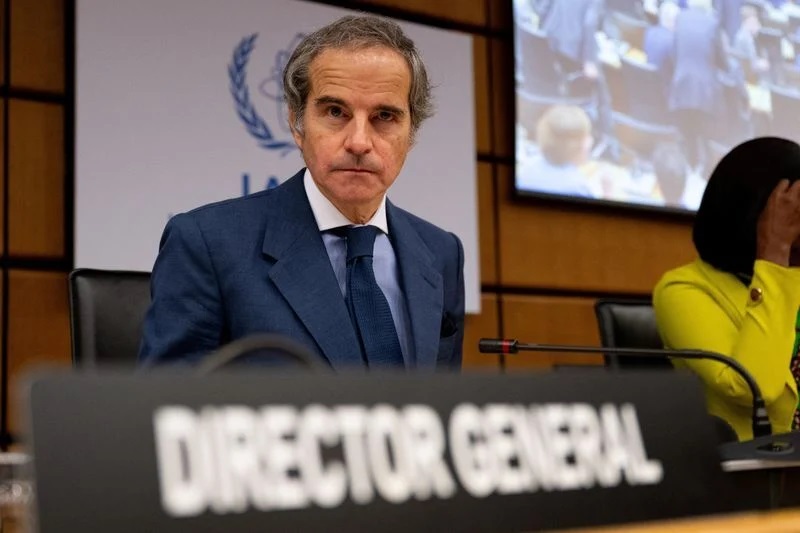Rafael Grossi, the head of the United Nations’ nuclear watchdog, delivered a comprehensive update on Monday, June 16, 2025, regarding the status of Iran’s nuclear facilities following Israeli airstrikes.
According to online news agency reports, he confirmed that there had been no additional visible damage at Iran’s major uranium enrichment sites at Natanz and Fordow since the initial strikes.
Speaking to an emergency session of the International Atomic Energy Agency’s (IAEA) 35-member Board of Governors, Grossi clarified that the latest assessments found no new physical harm to the primary underground enrichment facility at Natanz or the Fordow site.
The site is reportedly embedded deep within a mountain.
However, he did note that the power supply to the larger Natanz plant had been destroyed in the earlier attack.
This raises concerns about possible damage to the centrifuges used for uranium enrichment due to the sudden power loss.
Grossi reiterated that the smallest of Iran’s three enrichment sites – the above-ground pilot plant located within the larger Natanz complex, had already been confirmed as destroyed in previous assessments by the IAEA.
“There has been no further damage at the Natanz Fuel Enrichment Plant since the Friday assault that destroyed the above-ground Pilot Fuel Enrichment Plant,” Grossi stated in his briefing.
He emphasized that while the underground sections appeared physically intact, the loss of electricity could still impact sensitive equipment within.
The IAEA had previously reported that Israel’s strike had effectively dismantled the pilot enrichment plant, which, while smaller than other facilities, plays a key role in Iran’s uranium processing operations.
Grossi also provided new details regarding the extent of destruction at Iran’s nuclear complex in Esfahan (Isfahan), a critical facility in the country’s nuclear infrastructure.
Over the weekend, it was revealed that four separate buildings were impacted by Israeli attacks.
These included essential components of the uranium conversion chain.
“At the Esfahan nuclear site, four buildings sustained damage from the Friday strike,” Grossi confirmed.
“These include the central chemical laboratory, a uranium conversion plant, the Tehran reactor fuel manufacturing plant, and a facility for processing uranium tetrafluoride (UF4) into enriched uranium metal, which was still under construction at the time of the attack.”
The Esfahan site is especially significant because it houses the uranium conversion facility that processes yellowcake uranium into uranium hexafluoride (UF6), the feedstock used in gas centrifuges for enrichment.
Disruptions to this supply chain could have broad implications for Iran’s ability to continue enrichment at scale.
Despite the ongoing military activity and threats to nuclear infrastructure, Grossi affirmed the IAEA’s ongoing commitment to monitoring Iran’s nuclear program.
He stressed that the agency would maintain its presence in the country and resume inspections as soon as conditions permitted.
“The IAEA remains present in Iran,” he said.
“Safeguards inspections will resume as soon as it is deemed safe for personnel to do so, in line with Iran’s obligations under the Non-Proliferation Treaty (NPT).”
This update comes as international concern grows over the potential for further escalation and damage to Iran’s sensitive nuclear infrastructure amid the broader conflict with Israel.
The IAEA is particularly focused on ensuring that Iran’s nuclear material remains under proper safeguards despite the chaos.
It plays a central role in verifying compliance with nuclear agreements and monitoring nuclear activities worldwide,
Iran has long insisted that its nuclear program is for peaceful energy purposes.
On the other hand, countries like Israel and Western powers have raised alarms over Iran’s increased uranium enrichment activities in recent years.
The damage to facilities now raises not only safety and proliferation concerns but also questions about Iran’s ability to maintain or rebuild its program in the face of ongoing military strikes.
Grossi concluded by urging all parties to exercise restraint and reaffirmed the IAEA’s role as an impartial body committed to nuclear safety, transparency, and international legal obligations.







